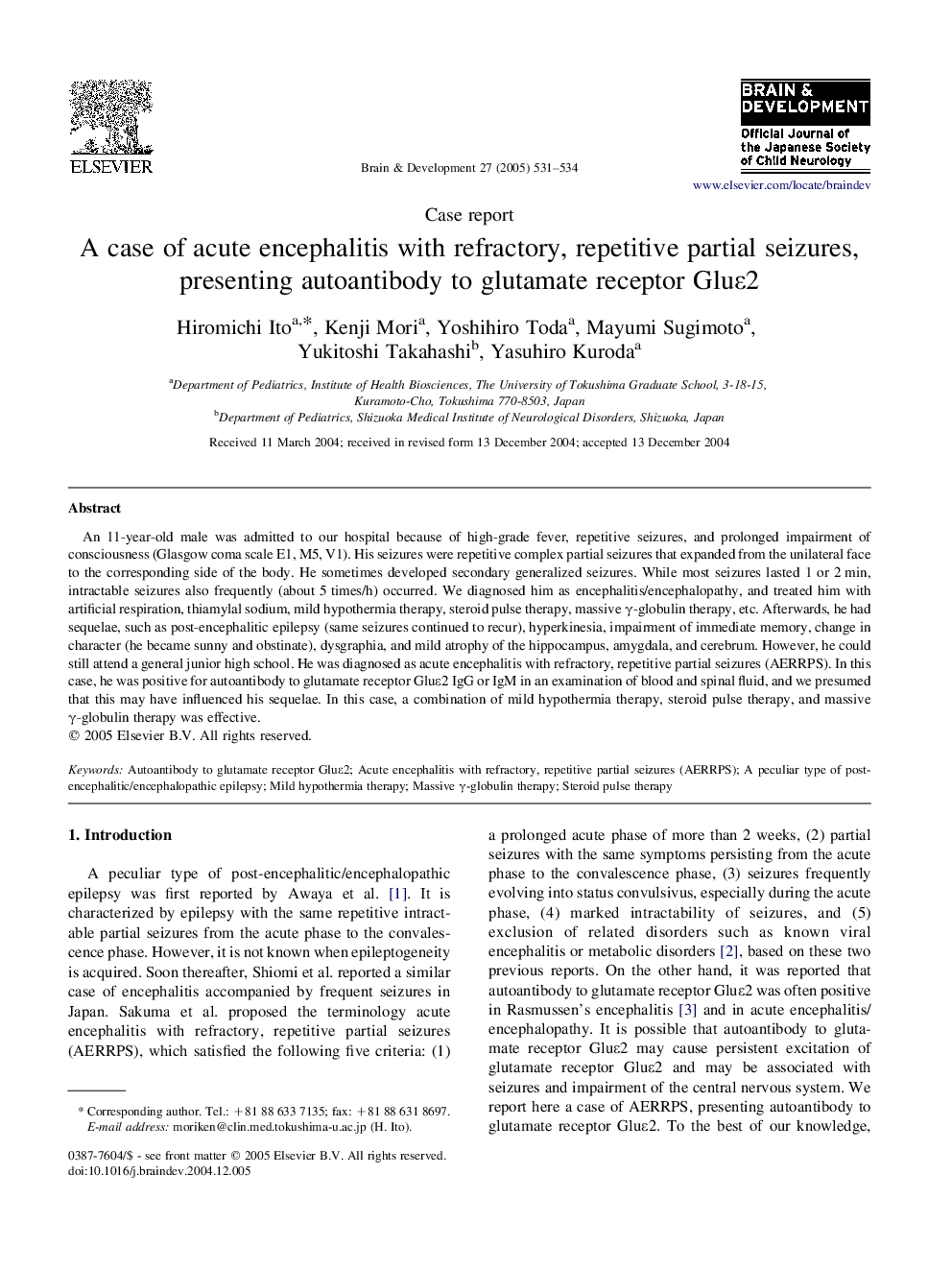| Article ID | Journal | Published Year | Pages | File Type |
|---|---|---|---|---|
| 9187474 | Brain and Development | 2005 | 4 Pages |
Abstract
An 11-year-old male was admitted to our hospital because of high-grade fever, repetitive seizures, and prolonged impairment of consciousness (Glasgow coma scale E1, M5, V1). His seizures were repetitive complex partial seizures that expanded from the unilateral face to the corresponding side of the body. He sometimes developed secondary generalized seizures. While most seizures lasted 1 or 2 min, intractable seizures also frequently (about 5 times/h) occurred. We diagnosed him as encephalitis/encephalopathy, and treated him with artificial respiration, thiamylal sodium, mild hypothermia therapy, steroid pulse therapy, massive γ-globulin therapy, etc. Afterwards, he had sequelae, such as post-encephalitic epilepsy (same seizures continued to recur), hyperkinesia, impairment of immediate memory, change in character (he became sunny and obstinate), dysgraphia, and mild atrophy of the hippocampus, amygdala, and cerebrum. However, he could still attend a general junior high school. He was diagnosed as acute encephalitis with refractory, repetitive partial seizures (AERRPS). In this case, he was positive for autoantibody to glutamate receptor Gluε2 IgG or IgM in an examination of blood and spinal fluid, and we presumed that this may have influenced his sequelae. In this case, a combination of mild hypothermia therapy, steroid pulse therapy, and massive γ-globulin therapy was effective.
Keywords
Related Topics
Life Sciences
Neuroscience
Developmental Neuroscience
Authors
Hiromichi Ito, Kenji Mori, Yoshihiro Toda, Mayumi Sugimoto, Yukitoshi Takahashi, Yasuhiro Kuroda,
